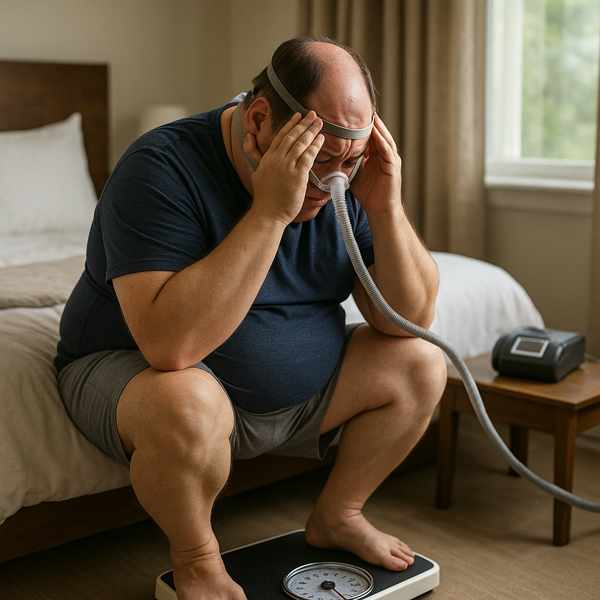
Many people with sleep apnea experience snoring, daytime fatigue, and health complications.
While not always a complete cure, weight loss often reduces the severity of sleep apnea significantly.
What Is Sleep Apnea?
The most common form is obstructive sleep apnea (OSA), caused by excess tissue in the throat.
Common symptoms include:
- Often reported by sleep partners
- Interrupted breathing patterns
- Difficulty staying alert during the day
- Morning headaches or dry mouth
The Link Between Weight and Sleep Apnea
Carrying extra weight, especially around the neck and upper body, can put pressure on the airway during sleep.
Key risk factors include:
- High BMI (Body Mass Index)
- Narrows the airway path
- Can contribute to airway collapse
Is It Possible to Eliminate Symptoms Naturally?
In many cases, losing weight can dramatically reverse or manage sleep apnea symptoms.
Possible benefits of weight loss:
- Less airway obstruction
- Reduced risk of waking up during sleep
- More natural treatment options
- Improved sleep quality and energy
However, more information weight loss may not cure sleep apnea in all cases — especially if anatomical issues or severe OSA are present.
What Results Can You Expect?
Even modest weight loss can have a big impact.
Tips:
- Start with small, achievable goals
- Combine diet and exercise
- Track your sleep changes
Lifestyle Changes That Help
Effective strategies:
- Limit sugar and processed carbs
- Exercise regularly (cardio + strength)
- Sleep on your side
- Avoid alcohol and sedatives
Working with a nutritionist or sleep specialist can provide more personalized support.
Other Treatments Besides Weight Loss
While weight loss is helpful, it may not fully resolve sleep apnea for everyone.
- CPAP therapy (Continuous Positive Airway Pressure)
- Oral appliances
- Surgery in severe cases
Is Weight Loss the Answer?
So, can weight loss cure sleep apnea? In many cases, it can greatly reduce the condition.
Still, sleep apnea is a medical condition that may require combined treatments.